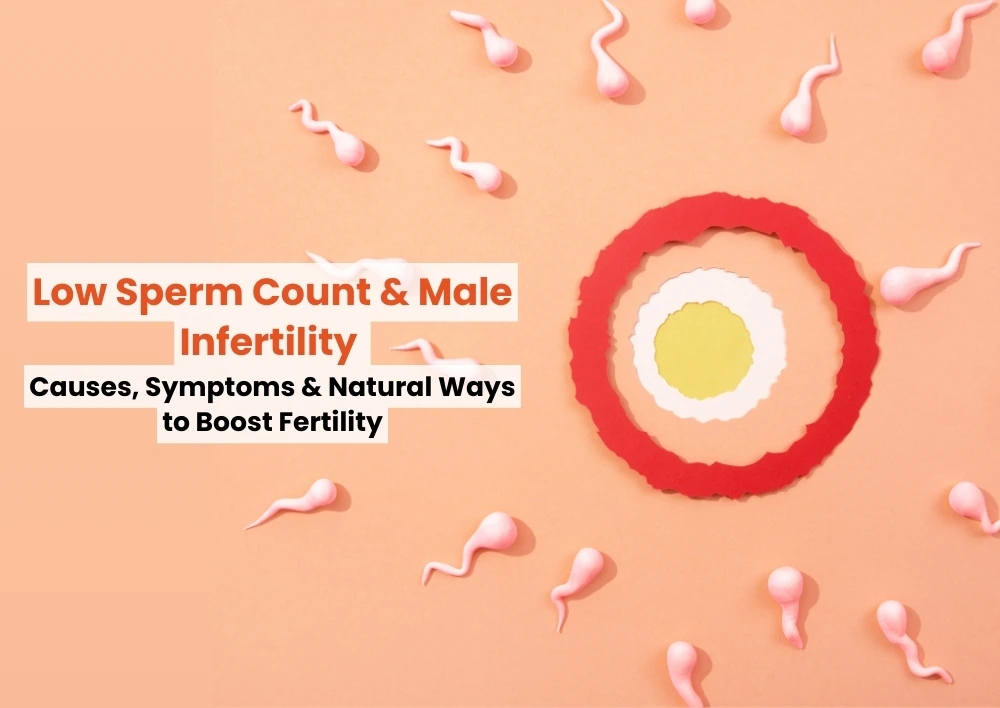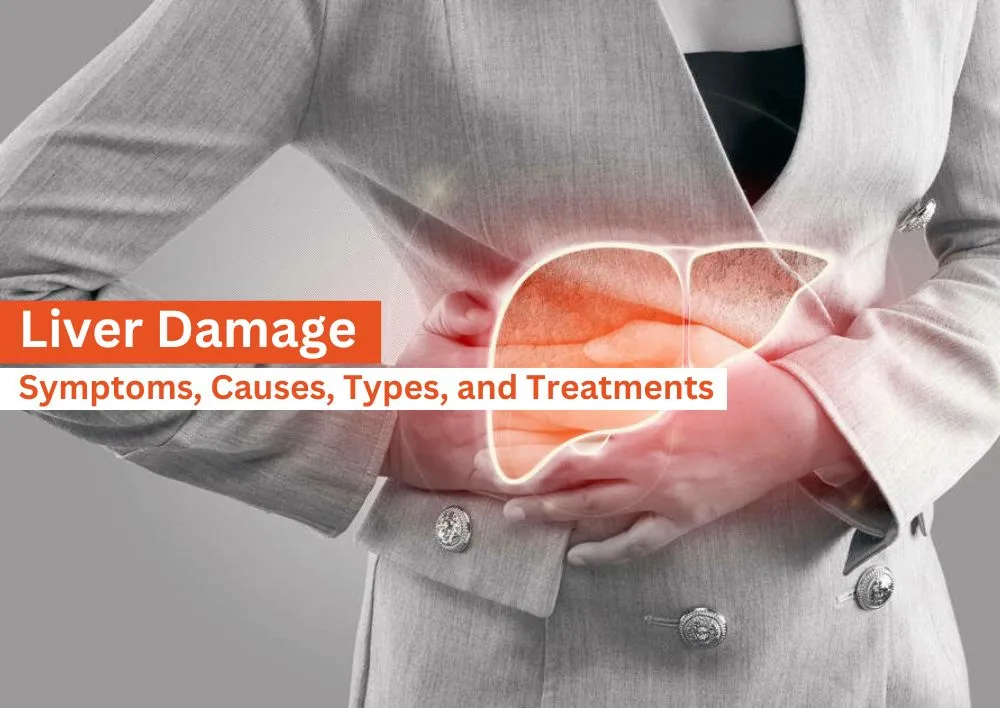Low Sperm Count & Male Infertility: Causes, Symptoms & Natural Ways to Boost Fertility
Summary: Male infertility, often caused by low sperm count, can significantly affect a couple's ability to conceive. Sperm count refers to the number of sperm cells in semen, and a low count reduces the chances of fertilizing an egg. Several factors like poor diet, stress, obesity, and environmental toxins can lead to low sperm count. However, adopting a healthy lifestyle, including a nutrient-rich diet, regular exercise, stress management, and avoiding harmful habits like smoking and excessive alcohol consumption, can naturally boost sperm production.
Male fertility plays an important role in conception, and sperm count is one of the key factors affecting reproductive health. If you and your partner are trying to conceive, improving sperm health can significantly increase your chances. Male infertility, usually linked to low sperm count, can be a major barrier to conception. In this blog post, we will explore how low sperm count affects male fertility and provide effective ways to boost sperm production naturally.
What is Male Infertility?
According to the infertility specialist in gurgaon at Miracles Fertility & IVF Clinic, Male infertility is the inability to impregnate a female partner despite regular, unprotected intercourse for a year or more. It can be caused by various factors, including low sperm count, poor sperm motility, hormonal imbalances, genetic issues, and lifestyle factors.
What is Sperm Count?
Sperm count means the number of sperm cells present in a given volume of semen. It is usually measured in millions per milliliter (million/mL). A higher sperm count increases the chances of fertilizing an egg, improving the chance of conception.
What is the Relation Between Sperm Count and Male Infertility?
Sperm count is one of the most significant factors in male fertility. A low sperm count (oligospermia) reduces the chance of conception, while a complete absence of sperm (azoospermia) leads to infertility. However, even men with normal sperm count may experience infertility due to poor sperm quality or motility.
Sperm Count Analysis
A semen analysis is the sperm count test name that is used to evaluate sperm health. This test measures:
-
Sperm Count: The quantity of sperm in each milliliter (mL) of semen.
-
Motility: The capability of sperm to swim toward and fertilize an egg.
-
Morphology: The shape and structure of sperm.
-
Volume: The total amount of semen produced.
-
pH Level: Determines the acidity or alkalinity of semen.
A fertility specialist can assess the results and recommend appropriate treatments if necessary.
How Much Sperm Count is Normal?
According to the study, a normal sperm count is at least 15 million sperm per milliliter of semen, with a total count of 39 million sperm per ejaculate. A count lower than this may reduce the chances of conception.
Why Does Sperm Count Decrease?
There are numerous factors that can result in a low sperm count. Here are some common low sperm count reasons:
-
Poor Diet: Lack of necessary nutrients affects sperm production.
-
Excessive Alcohol and Smoking: Impact sperm quality and reduce count.
-
Obesity: Increases estrogen levels, which can lower sperm production.
-
Stress: Releases cortisol, which interferes with testosterone production.
-
Environmental Toxins: Exposure to chemicals and pollutants can harm sperm health.
-
Heat Exposure: Prolonged exposure to high temperatures, such as hot baths and saunas, also affects sperm production.
-
Medications and Medical Conditions: Certain medications and health issues like diabetes and hormonal imbalances can also reduce sperm count.
Low Sperm Count Symptoms
Low sperm count often does not present noticeable symptoms, but in some cases, men may experience:
-
Reduced Sexual Desire: Lower testosterone levels can affect libido.
-
Erectile Dysfunction: Difficulty maintaining an erection.
-
Pain or Swelling in the Testicles: This may indicate underlying conditions affecting sperm production.
-
Decreased Facial or Body Hair: A sign of hormonal imbalances.
-
Difficulty Conceiving: Inability to achieve pregnancy despite regular unprotected intercourse.
If you experience any of these symptoms, consult male fertility doctor near you.
How to Increase Sperm Count Naturally?
Here are ten natural ways to boost sperm count and improve male fertility:
-
Eat a Nutrient-Rich Diet: A diet rich in antioxidants, vitamins, and minerals enhances sperm production. Include foods high in zinc, folic acid, vitamin C, and vitamin E to improve sperm health.
-
Maintain a Healthy Weight: Obesity reduces testosterone levels and impairs sperm production. Regular exercise and a balanced diet help maintain an ideal weight and support fertility.
-
Reduce Stress Levels: Chronic stress increases cortisol levels, which negatively impacts sperm production. Engage in relaxation techniques such as meditation, deep breathing, and yoga to manage stress.
-
Exercise Regularly: Moderate exercise, especially weight training and cardio, boosts testosterone levels and improves sperm quality. However, avoid excessive exercise as it can have the opposite effect.
-
Avoid Excessive Alcohol and Smoking: Excessive alcohol consumption and smoking reduce sperm motility and DNA quality. Quitting or limiting these habits can significantly improve sperm health.
-
Stay Hydrated: Drinking enough water ensures optimal semen volume and overall reproductive health. Try to drink a minimum of 2-3 liters of water daily.
-
Get Enough Sleep: Quality sleep helps regulate hormone levels, including testosterone, which is essential for sperm production. Aim for minimum 7-8 hours of sleep per night.
-
Limit Heat Exposure: Avoid tight clothing, hot baths, and saunas as excessive heat can lower sperm production. Keeping the testicles cool supports optimal sperm health.
-
Avoid Toxins and Pollutants: Reduce exposure to pesticides, heavy metals, and chemicals found in plastics such as BPA. These toxins can harm sperm production and fertility.
-
Take Supplements: Certain supplements like coenzyme Q10, omega-3 fatty acids, L-carnitine, and ashwagandha have been found to improve sperm health. Consult a doctor before starting any supplement.
What are the Sperm Count Enhancing Foods?
Including fertility-boosting foods in your diet can naturally improve sperm count and quality. Some of the foods for better sperm count include:
-
Walnuts: Rich in omega-3 fatty acids, which improve sperm structure.
-
Dark Chocolate: Contains L-arginine, which increases sperm volume and motility.
-
Spinach: High in folic acid, which is essential for sperm development.
-
Bananas: Contain bromelain, an enzyme that boosts testosterone production.
-
Pumpkin Seeds: Loaded with zinc, which enhances sperm production.
-
Eggs: Provide protein and vitamin E, which improve sperm count.
-
Garlic: Contains allicin, which improves blood flow to reproductive organs.
-
Tomatoes: Rich in lycopene, which enhances sperm motility.
-
Berries: Packed with antioxidants that protect sperm from damage.
-
Pomegranates: Improve sperm concentration and motility.
Conclusion:
Improving sperm count and male fertility requires a combination of healthy lifestyle choices, proper nutrition, and avoiding harmful habits. If you are facing male infertility problems, a medical consultation can help diagnose the underlying cause and provide tailored solutions. By making these small yet effective changes, you can significantly boost your reproductive health and increase your chances of conception.
If you are concerned about your fertility or sperm health, consult a specialist today. Schedule an appointment with our fertility experts near you to get a personalized evaluation and tailored treatment plan. The right guidance is the first step on your path to parenthood!




_in_Pregnancy.webp)









Was the information useful?
1 0